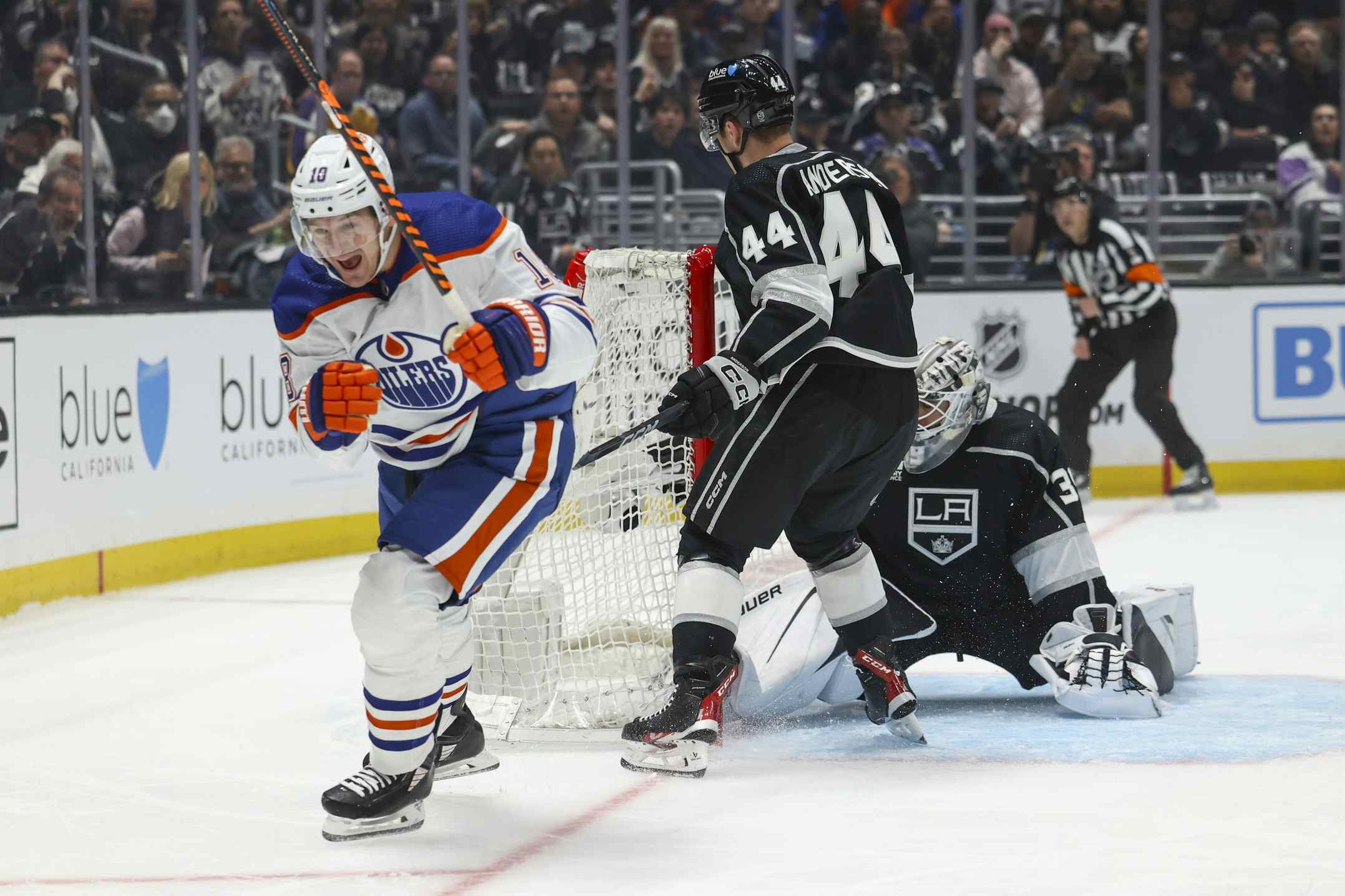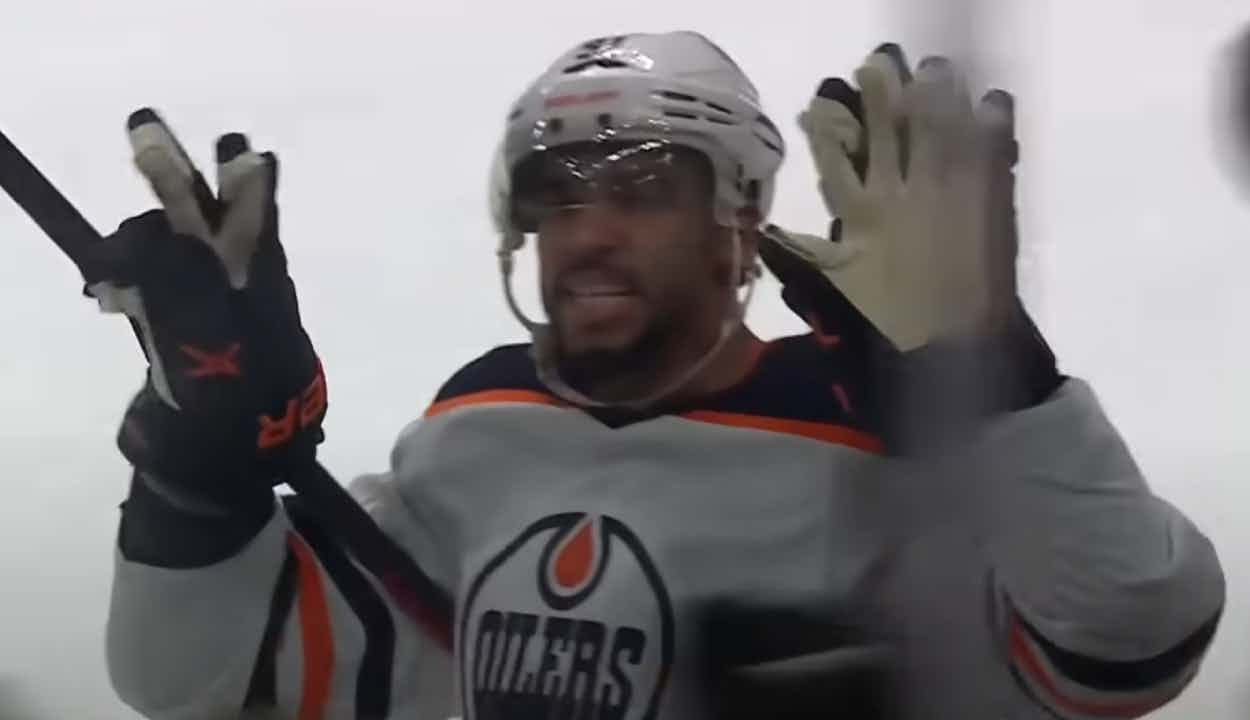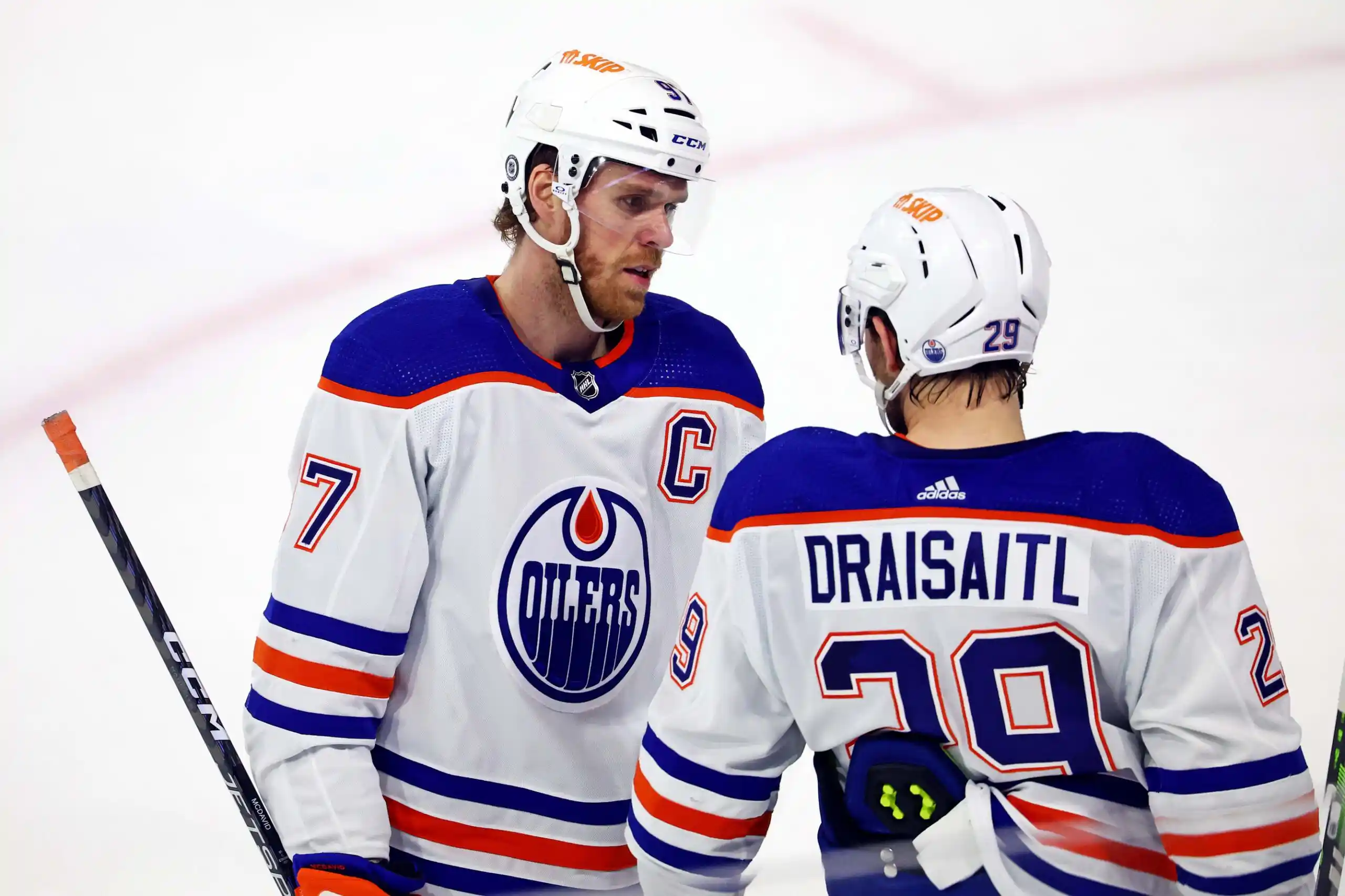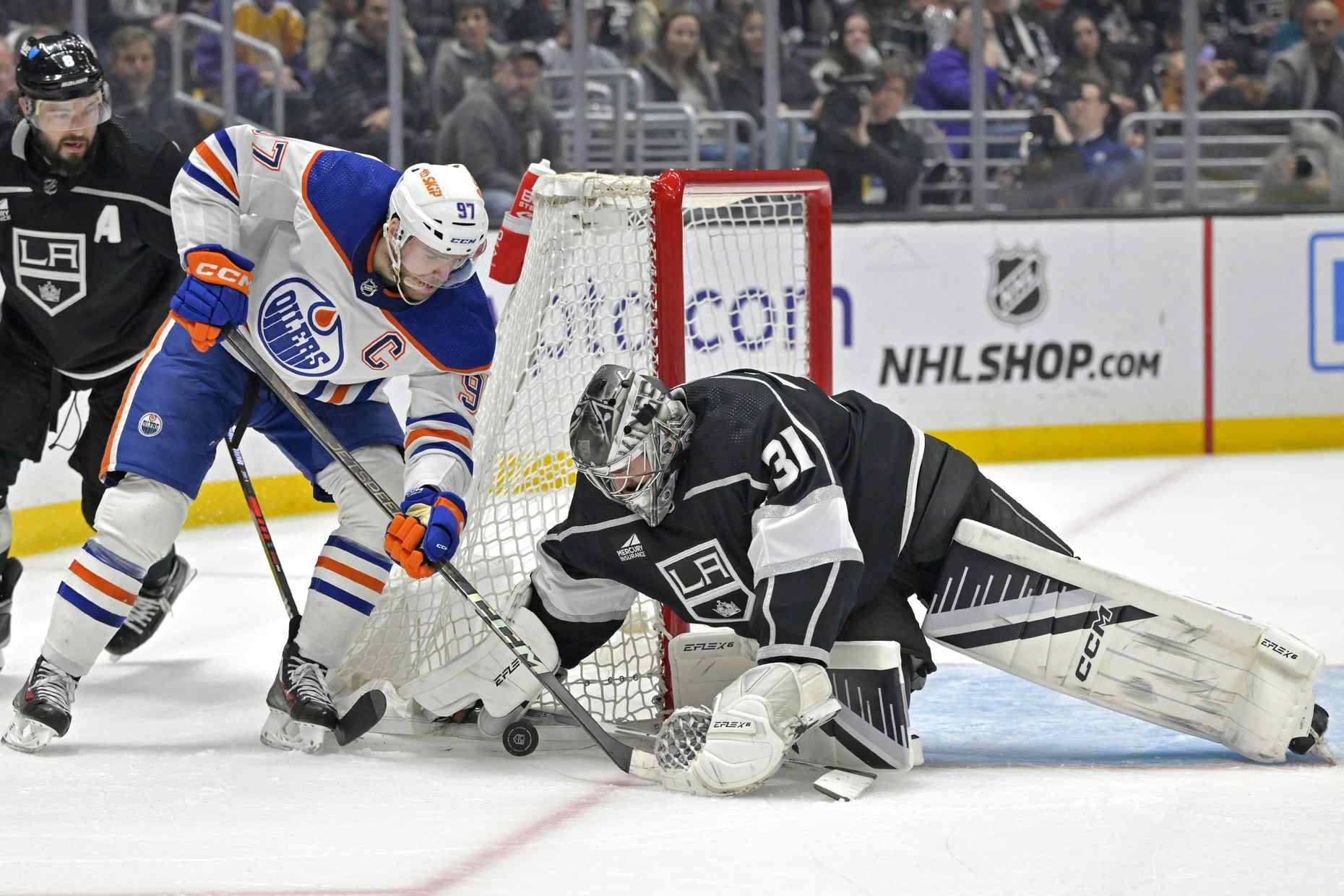LEARNING WITH LOU
By Jason Gregor
12 years ago
Recently I had the chance to chat one-on-one with one of the NHL’s most successful general managers, Lou Lamoriello. Lamoriello has been in the game for, basically his entire life, and he shared his thoughts on what it takes to build a winner, making the tough decisions to improve your team and how being a school teacher helped him become a successful GM.
JG: Where did your passion for hockey start?
LOU: Well, I certainly grew up in the old Rhode Island Reds American Hockey League team with a lot of players, being a stick boy, and certainly playing and growing through my dad’s relationship with the pros and played in college and certainly coached in college for over 15 years. But hockey was something that I grew up in, especially in the professional end of it, which a lot of people didn’t know. And, in fact, it started with an icon of the game.
When I was very little, Johnny Bower’s wife, Nancy, actually lived with my parents while Johnny was playing with the Providence Reds. So there was an association from a very young age with the professional game. And certainly while I was coaching in college I had a lot of players who signed and played professional hockey, and then it just grew from there. I was very fortunate to be around great people.
JG: Early on in your tenure, you went through a few coaches until you got to Jacques Lemaire, and obviously he was very successful ‑‑ won the first Stanley Cup in franchise history. Talk about the feeling as a GM on how you make that tough decision on when to let a coach go and how do you know if it’s the right or the wrong move.
LOU: Well, the seat that you sit in, you should have more knowledge than anyone else as to what your needs are and what the reasons are, and it’s not the intelligence of a coach or the knowledge or simplistically the talent of the players. What I saw when I came to New Jersey — and that’s all I can relate to; I really can’t relate to any other organization other than ours because this is the one that I know and the integral parts of it ‑‑ is that I came into New Jersey and had had a tremendously hard‑working team of the players that were drafted. And they felt good about just working hard, and I found that the culture had to change.
That was my thought process at that time, and it was just something that was no one’s fault, I mean, they had to turn the team over. The job that Max McNab and Marshall Johnston and David Conte with the drafts was just tremendous, but the culture had to change. And then once you feel that has to change, you react ‑‑ any team that you have, a coach can bring it just so far. And as we got better and better, we needed something that players could relate to. In my opinion, I thought we were ready, and that we could really challenge. We went through a couple of series in the early years against Pittsburgh and lost, and they went on to win the Stanley Cup. And I felt the players at that time just had to find somebody that they believed could get them there. And when Jacques came in — and certainly Larry came with him and Jacques Caron ‑‑ when they walked in the room, there was a presence. I felt we had the talent to do it, and that put us over the hump. And then after that we just tried to sustain and change, but coaches for teams and teams for coaches.
But it was always committed to winning, not a coach being an scapegoat or a trade being a scapegoat. It’s just, where I sat, I felt I had to do what was right for the organization and get the personal ends out of it, and that’s what’s transpired. In fact, we’ve had a coach come back after he had worked before because I felt he could do the best for the team that we had at that time. And I think as long as you’re upfront and you’re honest, you’re all going in the same direction, there’s no hidden agenda, it’s all about winning. No matter what we say, we’re going to be measured on what the success is and what the final day come.
JG: Before you were involved with the Devils, you were also a teacher in the 1970s, and teachers have to deal with a lot of personalities regardless of what age group you’re involved in. Did your background of a teacher help you deal with the personality traits in hockey? Because you’ve been a guy whose been a hard negotiator as a GM. You’ve also been someone whose been able to convince players to stick in that organization ‑‑ Stevens, Niedermayer, Brodeur ‑‑ for long times and maintain your dominance. Did any of that reflect on what you learned as a teacher?
LOU: I think that anything that I went through in my past was an asset to anything. It’s experiences, it’s relationships. I was very fortunate when I was in college to play for two great coaches ‑‑ both baseball and hockey, which is what I played in college ‑‑ and they were exceptional individuals as far as being ahead of their time in the game, and I reflect on them quite a bit. I think what gave me the broadest background was when I was athletic director and I had 22 different sports with a responsibility, which meant 22 different coaches, a lot of them part‑time.
You learn a lot about people and you learn a lot about coaching and you learn a lot about players and how they respond to certain types of coaches and when a coach loses a group of players. These were people who were working for very minimal amount of money, sometimes second jobs, and then as high as the elite. Those experiences, you cannot ever, ever not mention how important they are. And you learn. And you learn what to do, what not to do, and you see what works and what doesn’t work. But I think the most important thing is the honesty end of it and the lack of hidden agendas and telling somebody what they don’t want to hear more so than what they want to hear.
JG: You were varsity letter in both baseball and hockey. Which game did you like better, and which one did you think you were better at?
LOU: I actually put down the skates once baseball started, and put the bat and glove down when hockey started. I loved both of them, and to this day continue to love baseball and hockey and have been involved, as you know, in basketball. The only professional sport I haven’t been involved with is football. But at that period of time, they were both great to me. I was coaching both when I got out of school after playing for a couple of years, and there seemed to be more of a connection to hockey, I sort of drifted towards it, and I’ve never looked back.
JG: Where do you stand on realignment? Were you for the proposed idea, or do you think there should be some tweaking to it?
LOU: Well, first of all, I’m for what’s best for the game, and I have to get over the selfishness that we might all have because of our own individual situation. Although, when we make decisions, we have to make the best decision for our organization. But I look at what would be the overall good of the game, and I think right now that with the situation that we’re in, I certainly would have accepted the new alignment because I thought it was maybe the best of all worlds even though I, for the New Jersey Devils, would not have wanted it to happen because I’m happy with our situation as is right now.
Why? You mention it with travel, you mention it with the rivalries, and also because of our gates. Our gates are better with playing the Rangers and for Flyers and the Pittsburghs and the Islanders more so than, say, playing teams from the West Coast that our fans are maybe not as familiar with. In saying that, we have a year right now, whether it stays the same as it was or whether it’s tweaked. I think that we’ll just have to take that and see what people have to say and make the best decisions for the league. And that’s where I will be in the bottom line, but I certainly will push in any way I can that’s right for our organization.
JG: You mentioned you can only talk about your own situation because that’s all you’ve ever known. You’ve known success basically since the early ’90s for 20 years, which is rare. Having great players is one key, but how have you maintained that level of success and been able to avoid any extended long droughts for New Jersey?
LOU: Well, I think I’ve been very fortunate that ownership allowed me to sustain a consistent philosophy within our organization with the type of players that we want in our organization that will give us success, and that we predominantly are a home‑bred organization for the most part, as far as our draft picks. And yet, we have gone out at different times when we felt it was the best for the organization. But we start off with our own in our drafts and trying to have patience with them as best we can.
Certainly the new system that we’re in today we have to push the players a little sooner than we have in the past. We always had players play in the minors here no matter how good they were. I think we’ve only had three players to ever not play in the minors, and two of them could have stayed here but we sent them back to junior ‑‑ that was Scott Niedermayer and Scott Gomez ‑‑ where they made our team basically as an 18‑year‑old, and when they did come out as a 19, they went right into the team. And young Adam Larsson certainly this year is the third. So that’s something that we try to do the best. We still continue to do that. Patrick Elias ‑‑ who, in my opinion, will get every recognition for the Hall of Fame someday ‑‑ these people don’t realize he spent two and a half years in the minors, and those are the things we try to do. But I think just maintaining the same philosophy and the same style of play no matter who coached with tweaks here and there.
JG: Looking at Larsson compared to Niedermayer. You’ve been around and you see the players and how they act and just how mature 18‑year‑olds are now compared to when you first came in. Are you amazed by that? And at the same time, though, is there too much pressure on young kids coming in today’s game to be successful right away?
LOU: Oh, I think that we’re responsible for too much pressure. We’re responsible for the marketing end of it and the expectations, and we forget that they’re only 18 and 19 years old and that they’re going to go through ups and downs. And we criticize them when they go through that, and that’s something that we work very hard in New Jersey to try and minimalize. In fact, we get criticized as an organization for doing that and going the opposite way. And yet we feel, in the long run, it will be the best for our organization and also for the individual player.
I have three older children, and I can’t imagine one of them, when they were 18 ‑‑ seeing them at home and as mature as I felt mine were ‑‑ to actually go into and be exposed and have to read things that are covered in our game. That maybe things didn’t go tonight, or is this a player that won’t make it now. So there are tremendous pressures on them, and I think we have to give them a lot of credit. You talked about background. For 20 years I spent a life long of dealing with the 17‑ to 22‑year‑old person, so I know how they change, and I know what the maturity end of it is. And that’s something which I think we end up maybe pushing some of these young players too far too fast. And there’s only a handful, in my opinion, that have the ability to sustain that, and unfortunately we pushed them.
JG: You made one of the gutsiest moves when you relieved Robbie Ftorek of his duties late in the season and put in Larry Robinson, and you guys went on to win the Stanley Cup that year. And a few years later you did it again with Claude Julien very late in the season. The teams had decent records. What made you decide to make those very courageous moves at that time of the season?
LOU: Well, I look back sometimes and I say to myself, how did I do it? But I think that you have to be willing in the seat that you sit in, from the knowledge you have, to make the right decision for the organization ‑‑ not the easy one, not the one that the media feels is right, not the one of the fans, the one that you feel is right. And in both cases I felt that we had a team that was capable of winning, but I did not feel at that given time that we were goingin the right direction and what I felt that we had a chance of winning. And I took that responsibility, and I’ll never look back because you make a decision on the knowledge you have, on the research and the homework; and if you do that, then you go forward. You only look back if you feel that you did not make the decision on the right preparation or the right research.
JG: Recently the NHL lost a very good one in the Professor Ron Caron, a former GM of the St. Louis Blues. What comes to your think about Ron?
LOU: Oh, I have a lot of fond memories of Ron because, first of all, Ron ‑‑ any time I spoke to Ron, he spoke to me about baseball first because that was his passion. And my former owner, the late John McMullen had owned the Houston Astros, and Ron always wanted to talk about baseball. So whenever he’d call me about a hockey player or a trade, the first conversation I knew was about some baseball player or some game he went to. The Prof always talked about that. And probably the second is that I always had to have a couple security guards next to him in the press box. I never knew when he was going to jump out.
It was interesting listening to his views on "sitting in the seat" of the GM. Self-doubt is not an issue, and while not every move he made panned out, which never happens, he clearly doesn’t doubt any of them.
Lamoriello is one of the most insightful, and respectful hockey minds I’ve had the chance to talk to and it is clear why he’s been able to keep the Devils a competitive team for 20 seasons.
Recent articles from Jason Gregor





